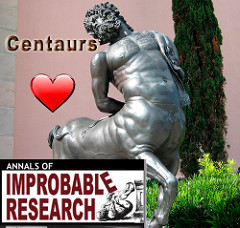
Perhaps the more mystery or inexplicable circumstances there are surrounding Christian origins the healthier it is for the faith business. Not that those of the faith are the only “beneficiaries”. Jesus is, after all, a central icon in the constellations of our broader cultural identities. The inexplicable is his defining asset.
The most improbable “stubborn fact”
Note what is generally presented as “the fact” of Christian origins that historians seek to explain:
Christianity appeared suddenly and spread quickly as a direct result of thousands of Jews being persuaded that a failed messiah, one crucified as a criminal by a Roman governor, was indeed a heavenly Messiah and to be worshiped as a divinity beside God himself.
Now on the face of it, this “fact” would seem as improbable as Protestants in Northern Ireland being converted by their thousands in response to Catholic missionaries proclaiming astonishing and miraculous events surrounding Mary in their midst. If I heard of conversions like that I would have to think that the Protestants really were convinced they were seeing the proof of something overwhelming.
So we would like to have some external, independent (non-Christian) witness to such an unlikely event. We have none in the case of the Christian “facts” above, but the closest we get is to a Jewish history written about sixty years after the supposed “facts” happened. This is not primary evidence that is a contemporary witness to Jesus. It is after-the-fact secondary evidence. So according to the father of modern history, von Ranke, it needs to be examined with extra care. Sometimes secondary evidence can even turn out to be more informative than primary evidence, so let’s see what we find in Josephus in support of the “facts” of Christian origins.
The most improbable testimony of Josephus
Josephus wrote to persuade readers of the superior wisdom of Mosaic customs, and who castigated all fellow Jews who strayed from those archaic customs and followed failed messianic types, but who made an exception in the case of Jesus in that:
- he was completely unperturbed by fellow Jews proclaiming the exalted heavenly messiahship of one crucified by his Roman benefactors as a criminal;
- he suddenly had no censure against Jews who were known to have either abandoned Mosaic customs or instigated divisions among Jews over their observance;
- he found no reason to elaborate just a little for his readers any details of the teachings of this Jesus, even though in every other case when introducing a new Jewish sect or teacher he offers readers at least a few lines of their basic curriculum.
Is it any wonder that the general consensus among scholars before World War 2 was that the testimony of Josephus was worthless as evidence for establishing the historicity of Jesus? Has the evidence changed since then? There have been many changes since then, and many that relate to the status of Jewishness, Judas and Israel in biblical studies and the wider community, but the above inconsistencies of the Jesus testimony with Josephus’s interests and ideology have not changed.
So far we have a most improbable “fact” about Christian origins, supported by a most improbable piece of external evidence.
On Tacitus, see Doughty’s Tacitus’ account of Nero’s persecution of Christians; for the other Christ reference in Josephus, see an earlier post, That brother of Jesus who is called Christ.
But what about the internal consistency within the Christian evidence itself. Luke Timothy Johnson points to this as one of the “facts” to be explained when dealing with the question of Christian origins?
The most improbable evidence of the Epistles
Early teachers (going by the names of Paul, Peter, James, Jude and John, and others unnamed) of this heavenly messiah could write numerous letters to their followers without finding any need or interest in referring to the earthly life, sayings and deeds of this Jesus that so compelled his disciples to believe in him even moreso after his crucifixion. At best, when referring to his teachings, they generally hid them behind quotations of the Jewish scriptures or as if they were their own personal proclamations.
Perhaps it is fitting that improbable “facts” are supported by improbable supporting evidence.
So what is the evidence for this most improbable “fact” of Christian origins?
Continue reading “The most improbable history of Christian origins”
